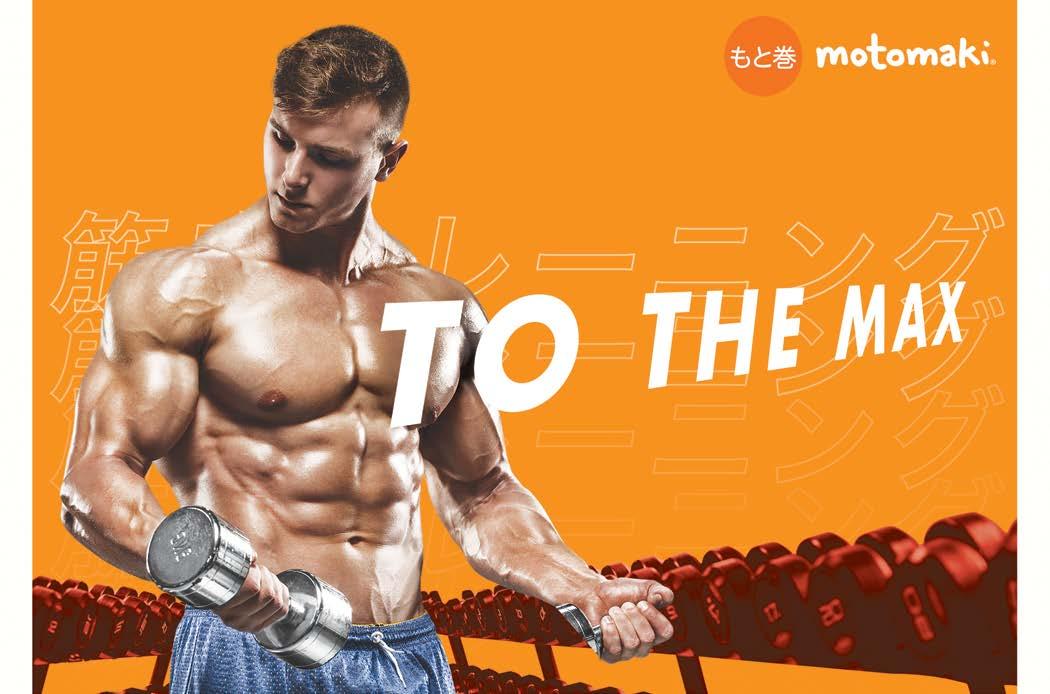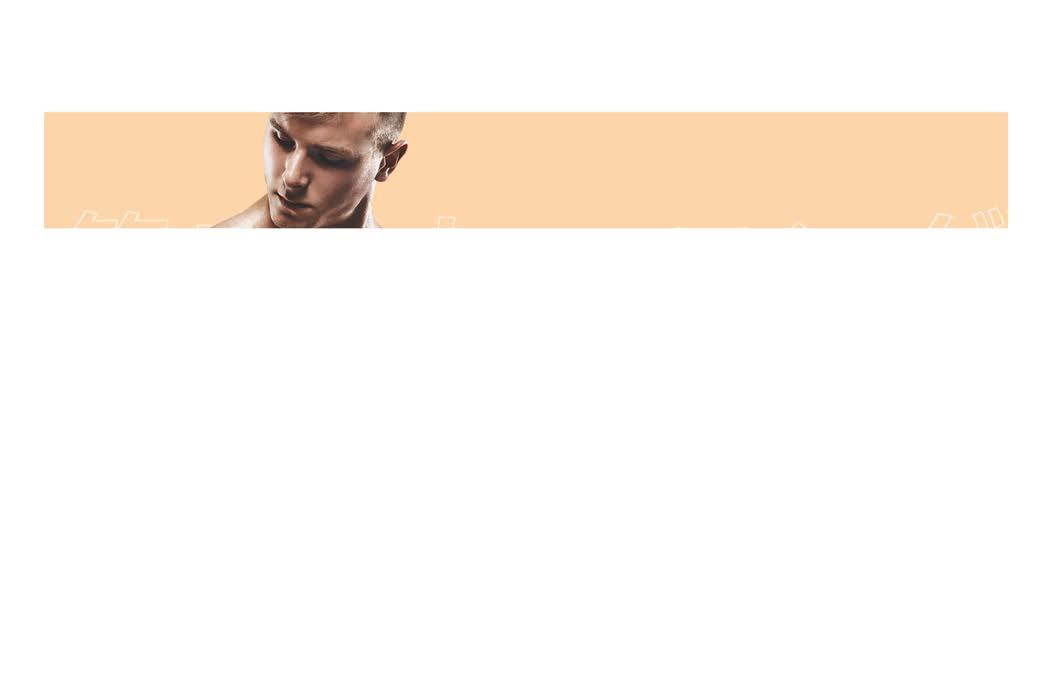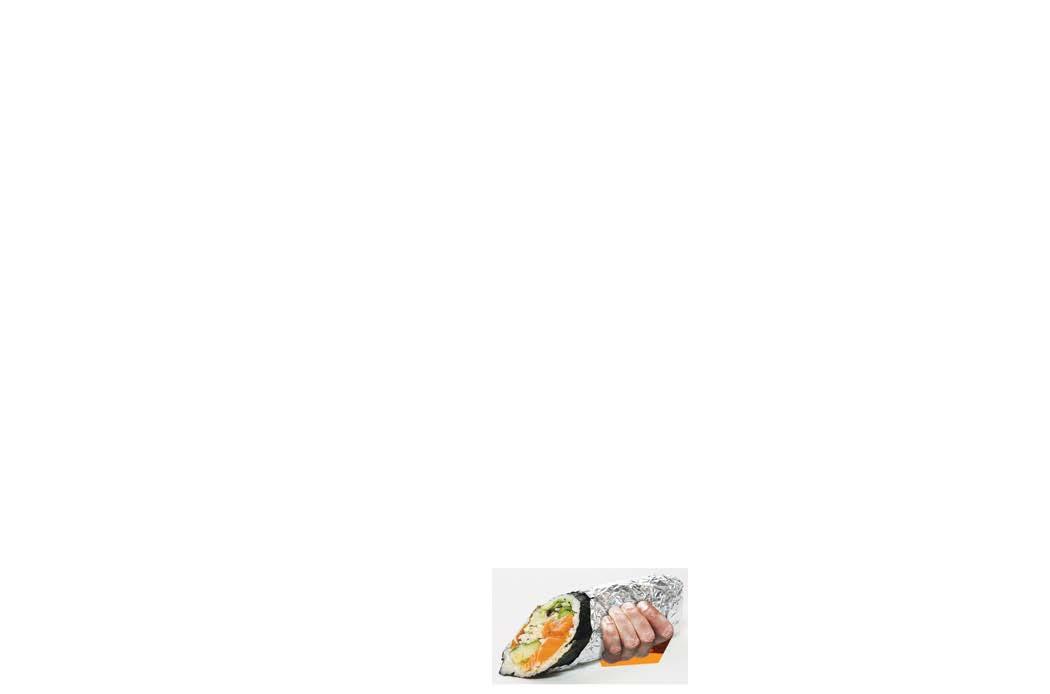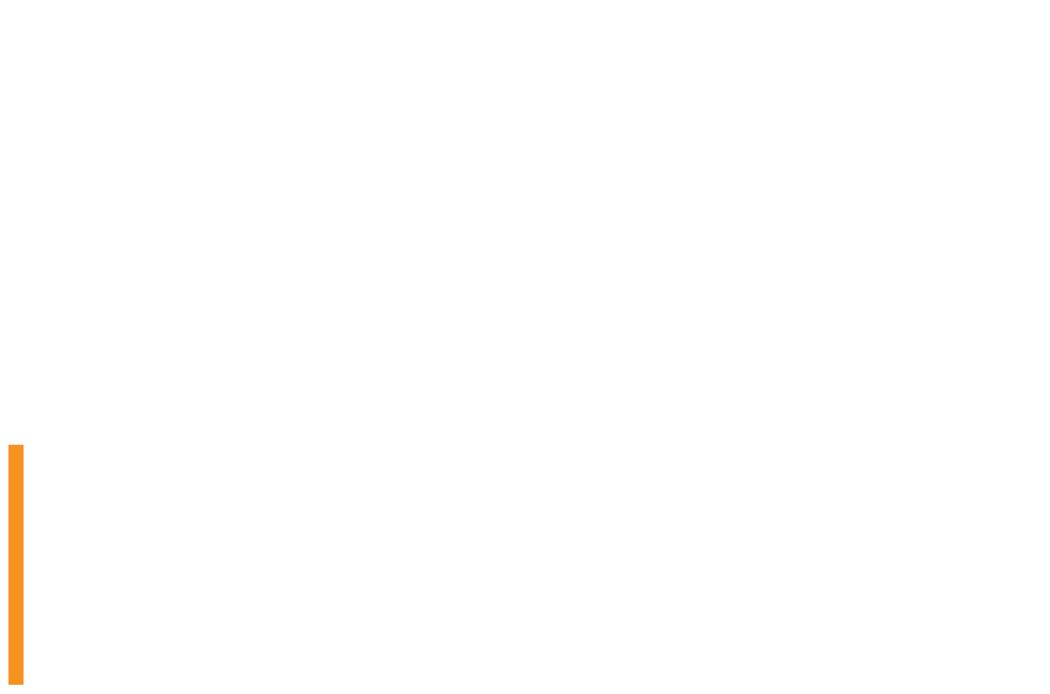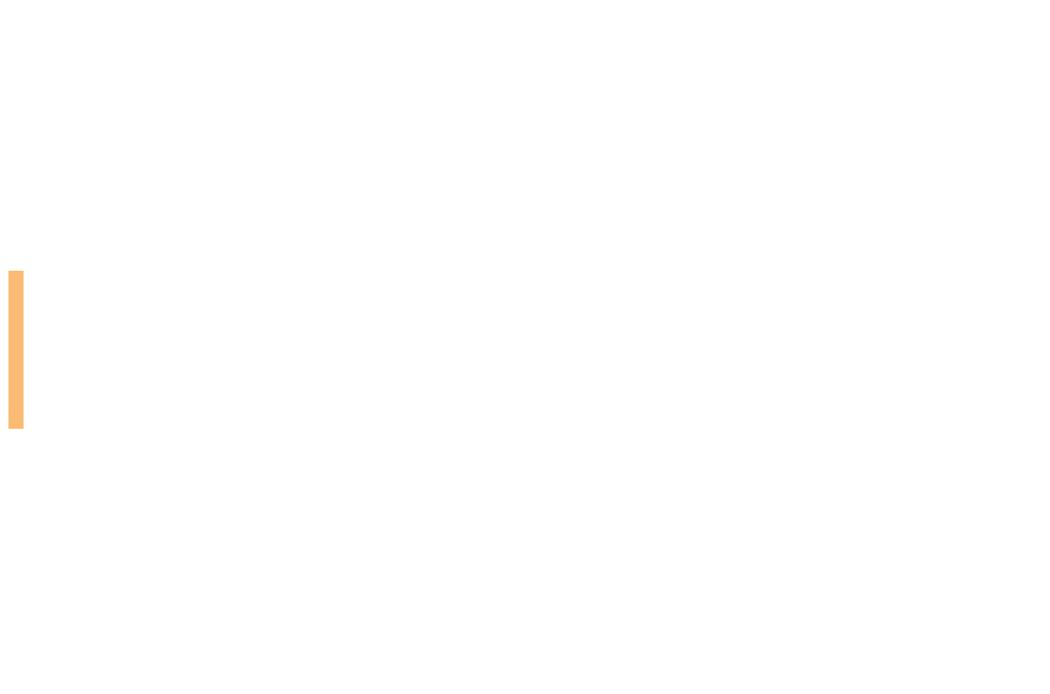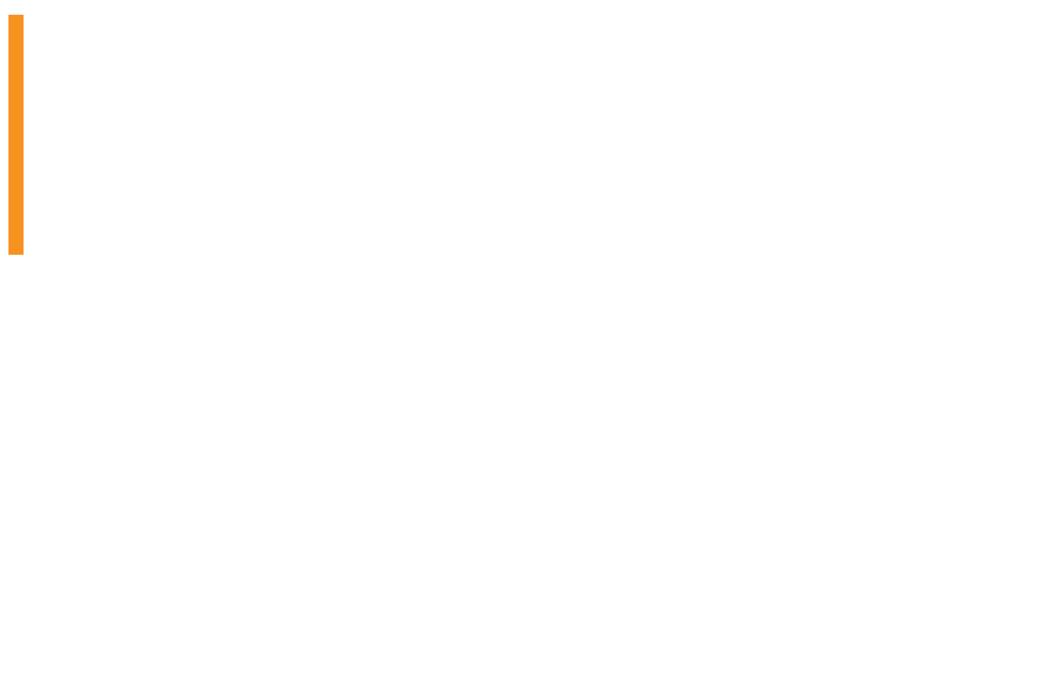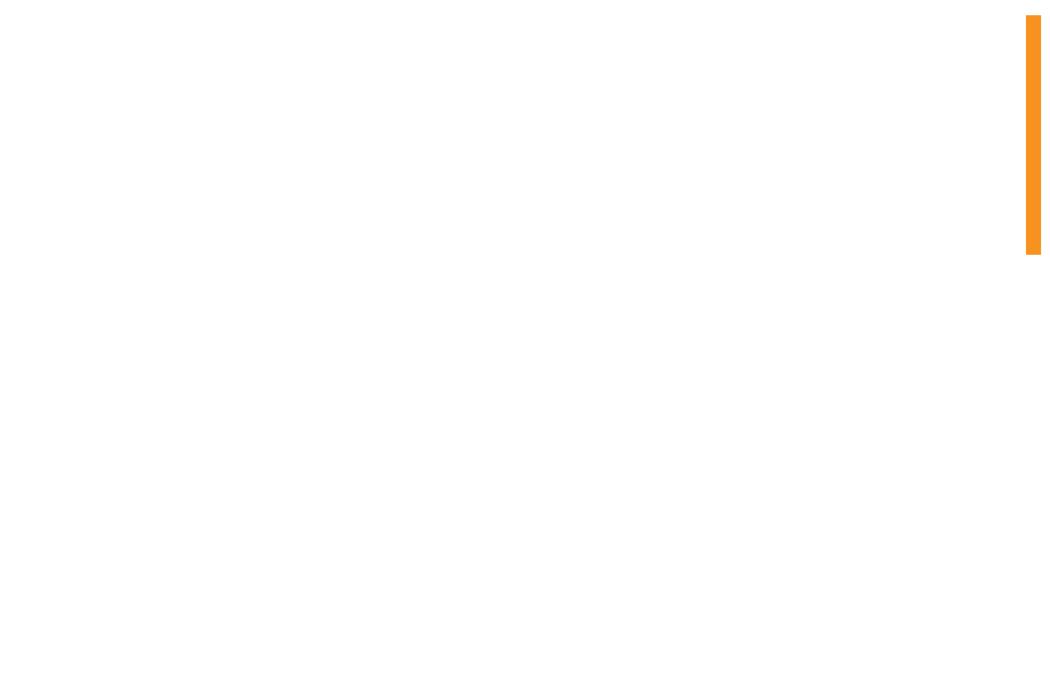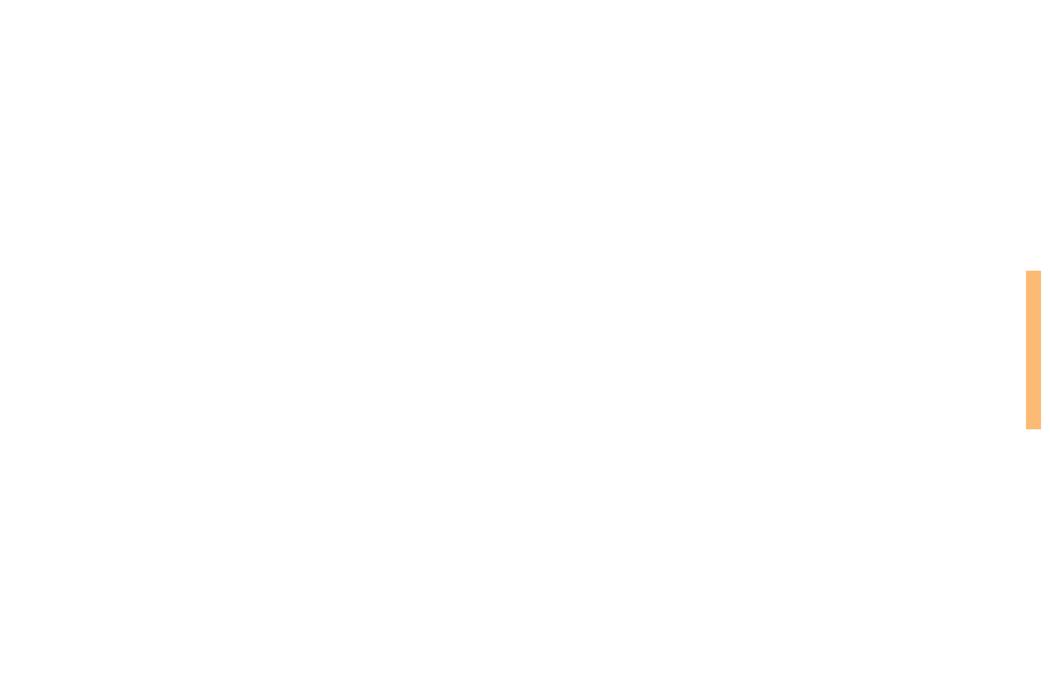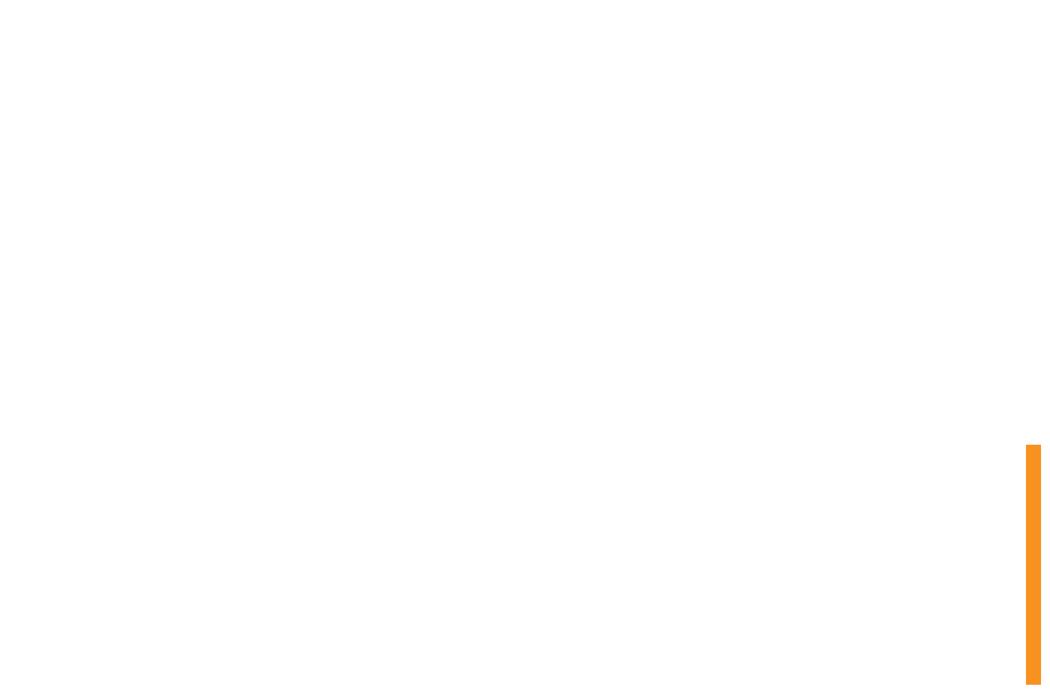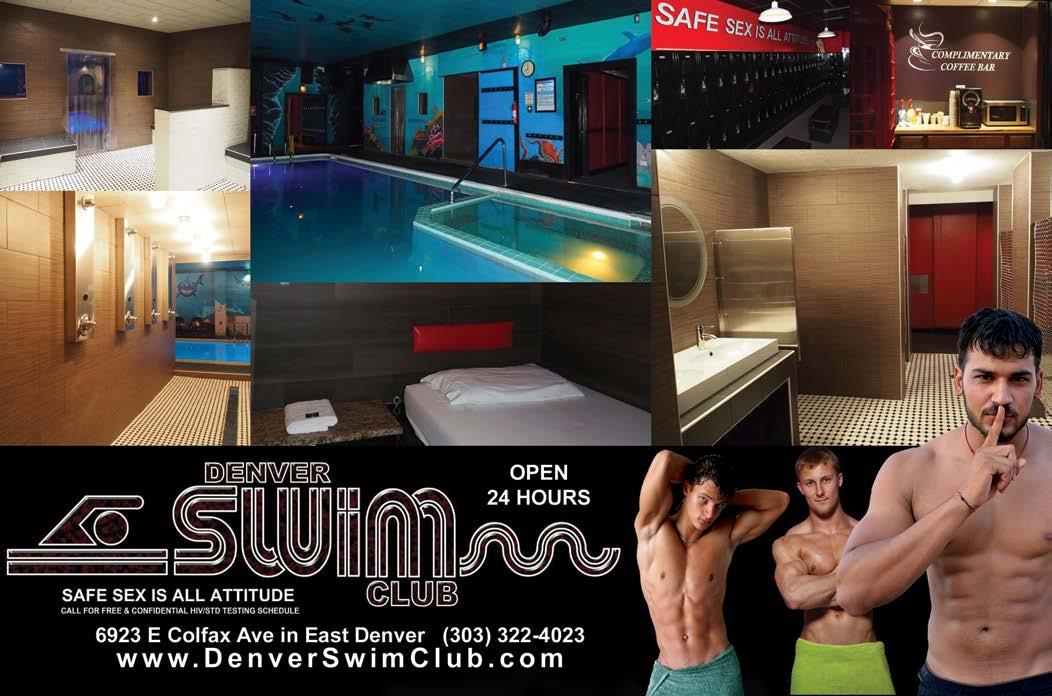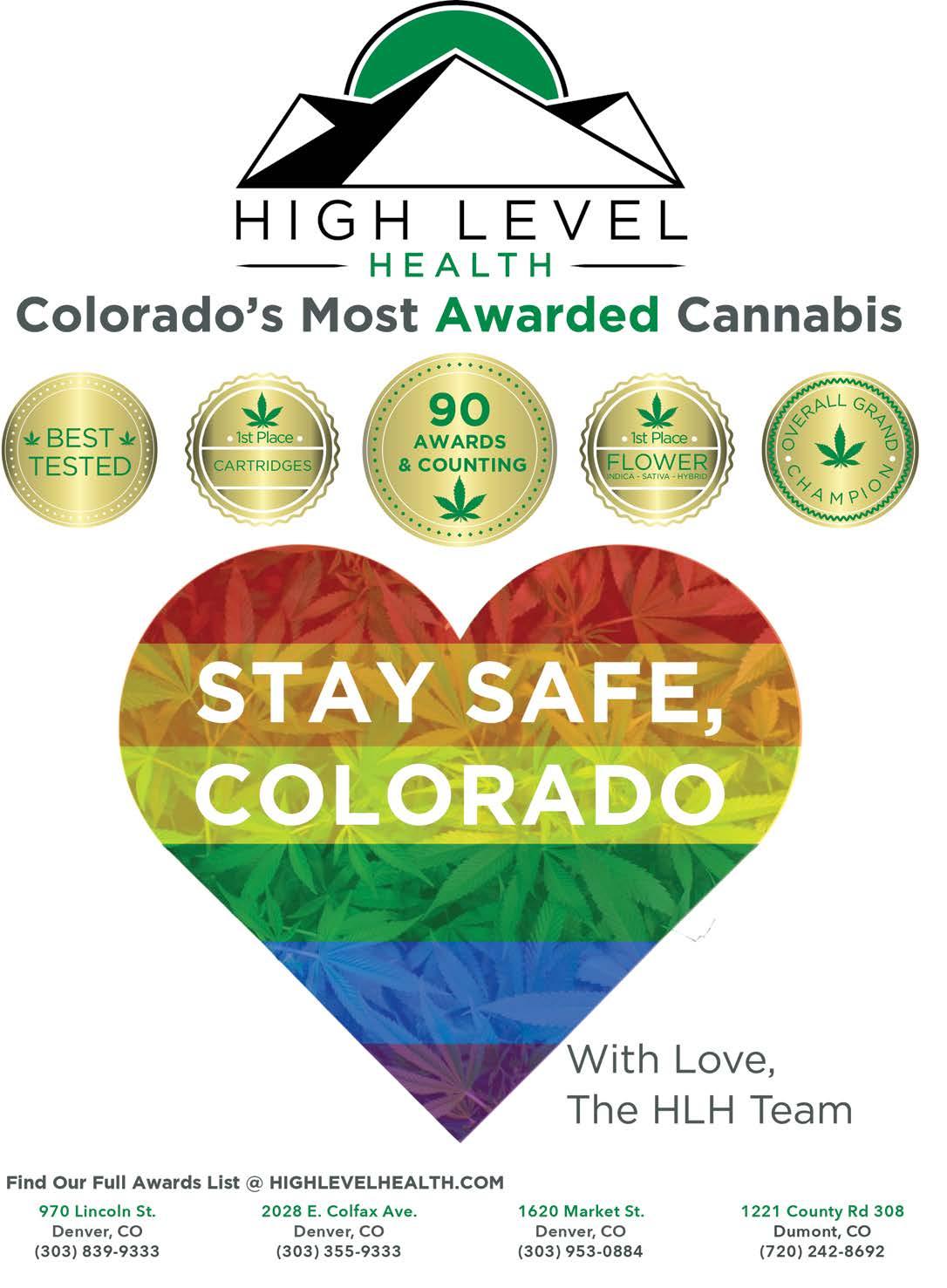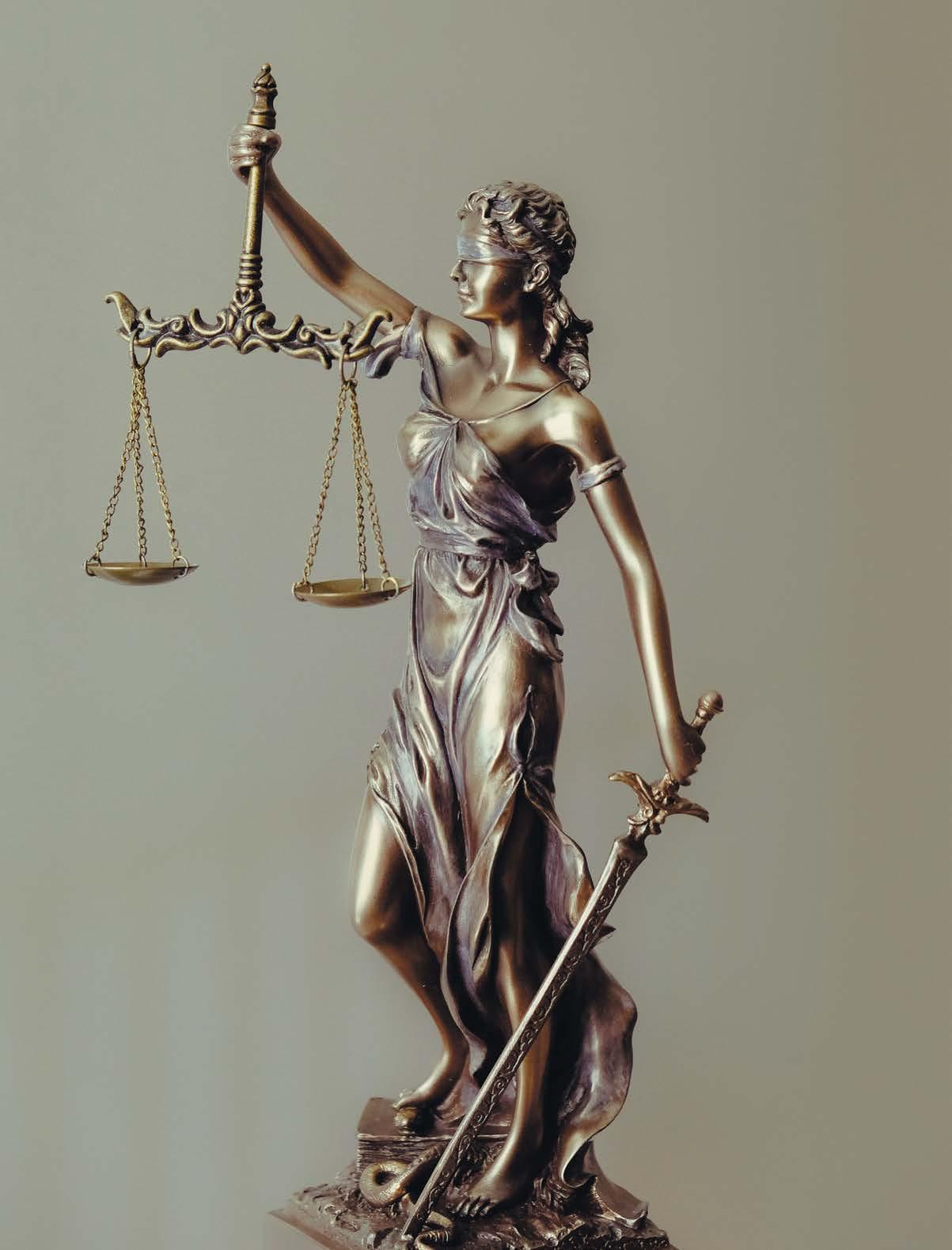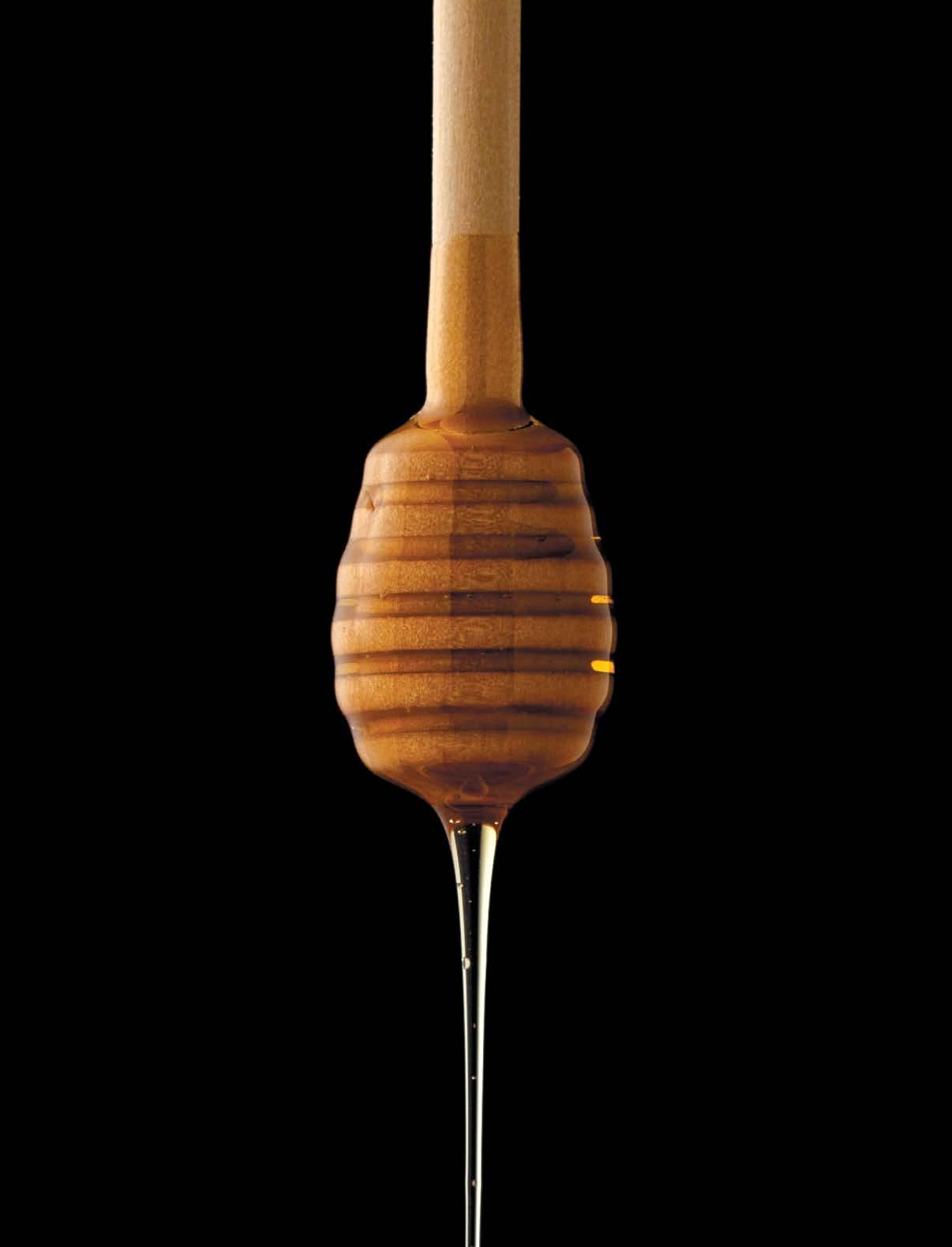
37 minute read
LEARNING THE T: MY BOOMER MOTHER’S QUESTIONS ABOUT TRANS IDENTITY
My m o m has the best intentions; she is progressive and empathetic. But she has trouble talking with her transgender coworker about his life. As her seasoned GSA-attending bisexual daughter, we collaborated to answer her questions about transgender identities.
As I understand it, gender identity is what gender a person 'identifies' as. What does that mean?
Gender identity is the way a person feels internally about their gender. Gender categories are what we socially construct to be masculine and feminine. People fall somewhere in this spectrum, but cultures build roles around specific genders.
Is there a term to describe a person who identifies as the opposite gender [than assigned at birth]?
“Transgender” describes people who don’t identify with their gender assigned at birth. Biological gender isn’t always indicative of how a person will be socialized. Intersex folks find themselves raised as a different gender than what their mind tells them because a doctor was confused by the shape of their genitalia. Folks have used transsexual and transvestite in the past, but “transgender,” or trans for short, is inclusive and less generalizing of trans experiences.
What is cis[gender]?
Much like trans folks feel their gender, cisgender-identifying individuals feel at their core their gender assigned at birth is correct. My mom said the following about her cisgender experience: “I mean, I feel like myself. I guess I identify as a female, likely in large part that's because I've been regarded as one.”
What is nonbinary? Or binary, for that matter.
Nonbinary folks are a subset of trans individuals who don’t see their gender falling in either masculine or feminine categories. The binary between men and women causes dysphoria in nonbinary folks because they never fully identify as either a man or woman. Nonbinary, genderfluid, agender, and demigender folks may identify more with one gender temporarily, but their nonbinary status doesn’t disappear.
If it doesn't have to do with which gender I'm attracted to, what would feel different if I identified as a male?
You would have felt uncomfortable in your body at first. From the experiences I’ve heard, gender dysphoria involves disliking gendered parts of your body and fascination with the opposite gender’s presentation. Some trans folks call themselves gay at first when their understanding of gender and sexuality are intwined. This isn’t always the case.
Do all the different possibilities of sexuality depend on which gender a person identifies as?
Similar to gender identity, sexual identity isn’t just biologically determined. My mom grew up knowing only gay and straight. Like gender, we now understand sexuality can be fluid. Traditionally, if my mom came out as a trans man who liked women, he would be considered straight. But my trans dad’s sexuality could evolve. It’s ultimately up to him.
Why include she/her in a bio? Wouldn't just female do?
Since the gender binary can often feel restrictive for trans folks who struggle to adhere to a specific gender, “male” and “female” are less commonly used. Including pronouns is an upfront way
to communicate how you want people to address you. Rather than having to guess (which can come across as transphobic), visible pronouns simplify interactions. Even if you are cisgender, including pronouns is an example of trans allyship.
What does they/them indicate about a person's gender identity?
They/them are a set of pronouns used by nonbinary folks. It’s common for “they” to describe one person; think about the singular “they” in Spanish. People also use ze/zir and Mx. to indicate gendernonconforming pronouns.
What is a terf?
T.E.R.F. stands for trans-exclusionary, radical feminist. A minority of feminist, thesecisgender women use feminism to stop those they perceive to be men dressed as women from invading female spaces. It’s similar to how some secondwave feminists didn’t include women of colors’ perspectives in their highpriority campaigns. It’s another form of transphobia.
I know lots of gay men who are very effeminate, and gay women who are very butch. Does that necessarily mean that they identify as the opposite of their biological gender?
This does not mean they are trans. Gender bending is a way the LGBTQ community asserts control in marginalizing societies. It’s a uniform for subgroups like butch lesbians (look at my mom using the right word) and femme gay men. It reflects how they interact with others but is more related to gender expression than gender identity.
Is a cross-dresser (say, RuPaul) always a person who identifies as the gender in which they dress?

Speaking of transphobia, drag performances aren’t automatically indicators of trans identity. Trans folks often use cross-dressing as a gateway into their identity, but drag performers aren’t all trans. There’s a long history of men dressing excessively feminine and performing. But, changing how you perform your gender doesn’t necessarily change your identity. RuPaul is a cisgender, gay man with a famous drag queen persona. He got in trouble for negative comments he made about trans women performing on RuPaul’s Drag Race in 2018 because he saw their efforts to transition genders as cheating on a show of men dressed as women. Looking like a woman and feeling like a woman are different.
If a biological female who identifies as a male wants me to know, am I expected to treat them differently, other than using their preferred pronouns?
That depends on the person. Trans folks can feel validated when people treat them as their preferred gender. However, their background and personality doesn’t change. “Passing” as a new gender isn’t the goal for many trans folks. They just want to be themselves. Rather than structuring your behavior around your understanding of their gender, respond to how they ask others to treat them. Ultimately, be kind. When in doubt, gently ask, and let them answer on their own time.
AMPLIFYING BLACK, DRAG, AND LGBTQ VOICES BOB THE DRAG QUEEN
by Denny Patterson Photos by Jacob Ritts
If you ask any true fan of RuPaul’s Drag Race, they will tell you that Bob the Drag Queen is a force to be reckoned with. The Season 8 champion immediately won our hearts with his quick wit, sickening runway looks, gut-busting comedy, and ability to take the stage “purse first.”
ost-Drag Race, the New York City queen has never been busier. On top of multiple comedy tours and gigs, Bob is the host of the Drag Race recap series The Pit Stop, stars in MTV’s Drag My Dad, where he helps bring families closer together through the magic of drag, and records a podcast called Sibling Rivalry with Monét X Change where they discuss current events and other topics. Think that’s enough? Guess again. Bob also released a brand-new comedy special titled Bob the Drag Queen: Live at Caroline’s, which is now available to watch on Apple TV and Amazon Prime Video and can be seen alongside Shangela and Eureka O’Hara in HBO’s new show We’re Here, where the queens visit small towns across the country to help people discover their inner fabulousness. We’re Here was recently renewed for a second season.
Bob may be using his platform to provide entertainment and laughs to audiences, but he is also using it to educate us on why the Black Lives Matter movement is important and how racism is very much prevalent in today’s society. A fierce social justice advocate, Bob wants to ensure that the oppressed will no longer remain silent. I would like to ask about your new comedy special that is now available for streaming, Bob the Drag Queen: Live at Caroline’s. Without giving too much away, can you tell us more about it? It’s funny! Bob the Drag Queen: Live at Caroline’s, I am really proud of it. It’s my second comedy special, and honestly, it’s objectively—I’m not saying it because it’s mine—it is objectively funny. I am really proud of it, and I am also the executive producer of it.
How does this special differ from Suspiciously Large Woman ? It is certainly different because I had a lot of time to grow as a comedian since then. It’s been three or four years since my last special, so I have just had an opportunity to hone my craft better, and you don’t have to watch up on Drag Race to get the humor to see why it’s funny.
Has comedy always been a passion of yours? When I was young, I always wanted to either be a public speaker or a comedian. Like, I remember being inspired by both MLK and Chris Rock. They are really quite remarkable, and I do take my activism pretty seriously as well as my stand-up comedy.
Which came first, comedy or drag? Technically, the comedy came first, but I never did stand-up; I was just writing it. Then, I decided to perform my first stand-up; it was also my first
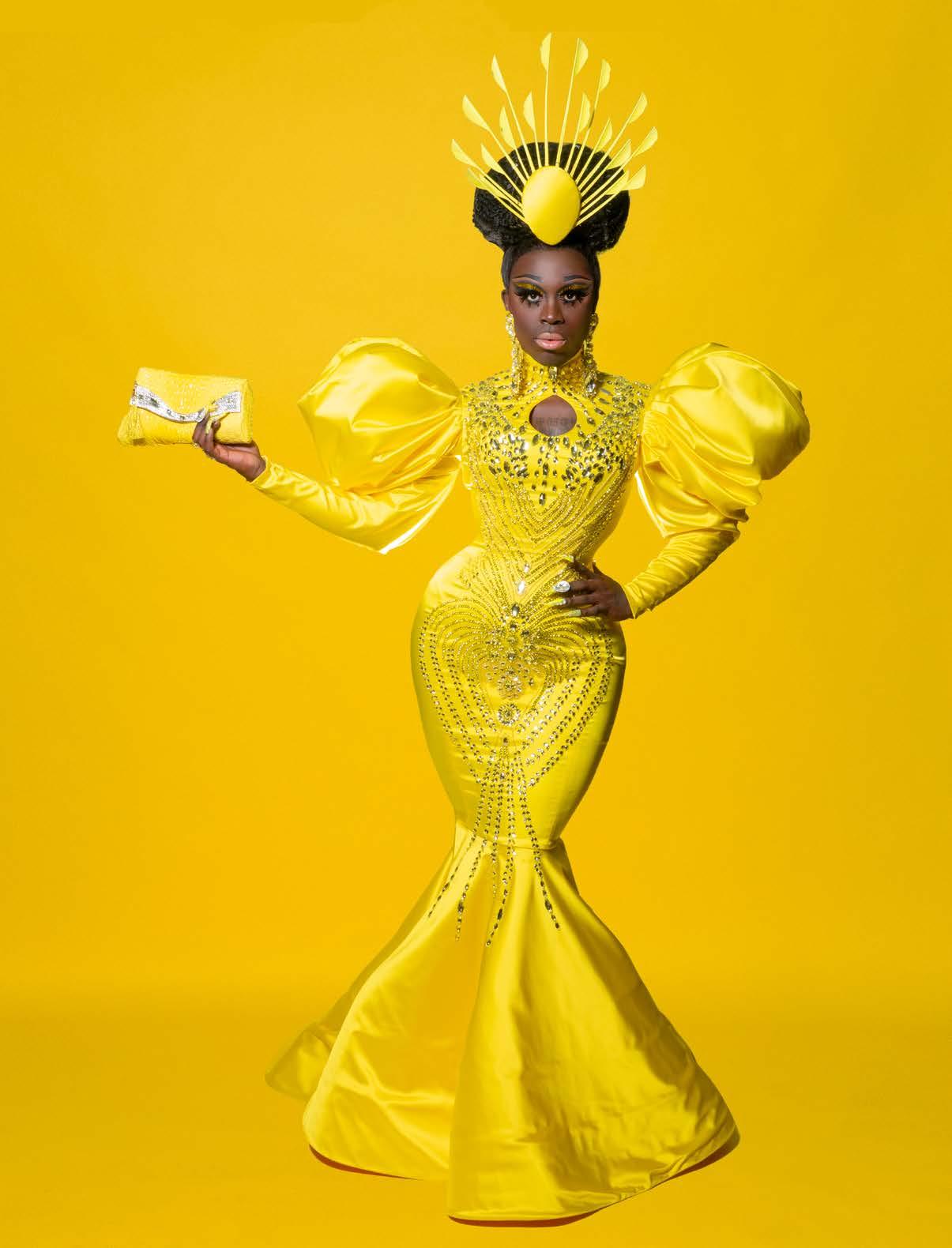
Your career obviously skyrocketed after winning the eighth season of RuPaul’s Drag Race. Why did you want to be on the show? Well, it is my favorite TV show. At the time, it was definitely kind of the pinnacle of what drag is. I never considered myself a pageant girl, but I thought to myself, if there’s one pageant I could win, it’s this one.
And you have taken on several projects since Drag Race, one being HBO’s We’re Here, which recently wrapped up its first season. How did you get involved with We’re Here, and can you tell us more about the inspiration behind it? And we got renewed for a second season and nominated for a Critic’s Choice Award, which is exciting. I got a phone call, like a cold call, from a number I didn’t recognize saying they had a show they would like me to be a part of and wanting me to like go to a meeting at their hotel because we couldn’t talk about it over the phone. I was like, what is going on? This is like a super secret mission. It was Steve Warren, one of the creators of the show, and I am so glad that I said yes to it. I’m not a born-and-raised New Yorker, and I have definitely taken on the skepticism that New Yorkers have. I mean, I was skeptical. Like alright, we’ll see.
We’re Here explores different LGBTQ experiences in small towns. What have you taken away the most from this experience? Even though I am from a small town and moved to the big city, I didn’t realize how much community there was regarding queer people in these small towns. Like, full community. And I know because I didn’t have a queer community when I lived in Alabama, Mississippi, or Columbus, GA, which is a bigger small town. I didn’t have that in my circles, so I was shocked to realize that there are such vibrant, queer communities in these small towns.
Drag has become more mainstream and is changing thanks to shows like Drag Race, especially in big cities. How is it evolving in smaller communities? I think drag is on such an international stage; it is just elevating the art form in general. No ifs, ands, or buts about it, drag queens are just really fucking good at doing drag nowadays. Like, really good. Not just drag queens from TV and young queens, but even queens who are seasoned like Jackie Beat and Sherry Vine are finding new ways to explore what it means to be better. Even though they are already legends, they have stepped it up even more.
I would now like to switch gears and talk about your social activism, the Black Lives Matter movement, and the national protests. What are your overall thoughts on the situation, and have you participated in any protests or marches? Yeah, I have gone to demonstrations, and I unintentionally participated in a really great demonstration where people go down to the police station to receive their friends coming out of jail but also make sure those coming out know that people stand with them in solidarity. I ended up participating in that by going down to pick up my friend from the clink, and I didn’t even know this was happening. It was really beautiful.
Can you talk more about these Black, queer town halls you had with Peppermint? So, Pep and I have been having these discussions on my YouTube page. Pep and I talk all the time, and we have these discussions on the phone anyway, so we were like, “Well, if we are going to have these discussions, we might as well let people hear them.” We started recording them, and then I just mentioned that I wanted to do a Black, queer town hall, and then it got picked up by NYC Pride, so it became an official NYC Pride event, which I am really proud of, and it is in conjunction with GLAAD.
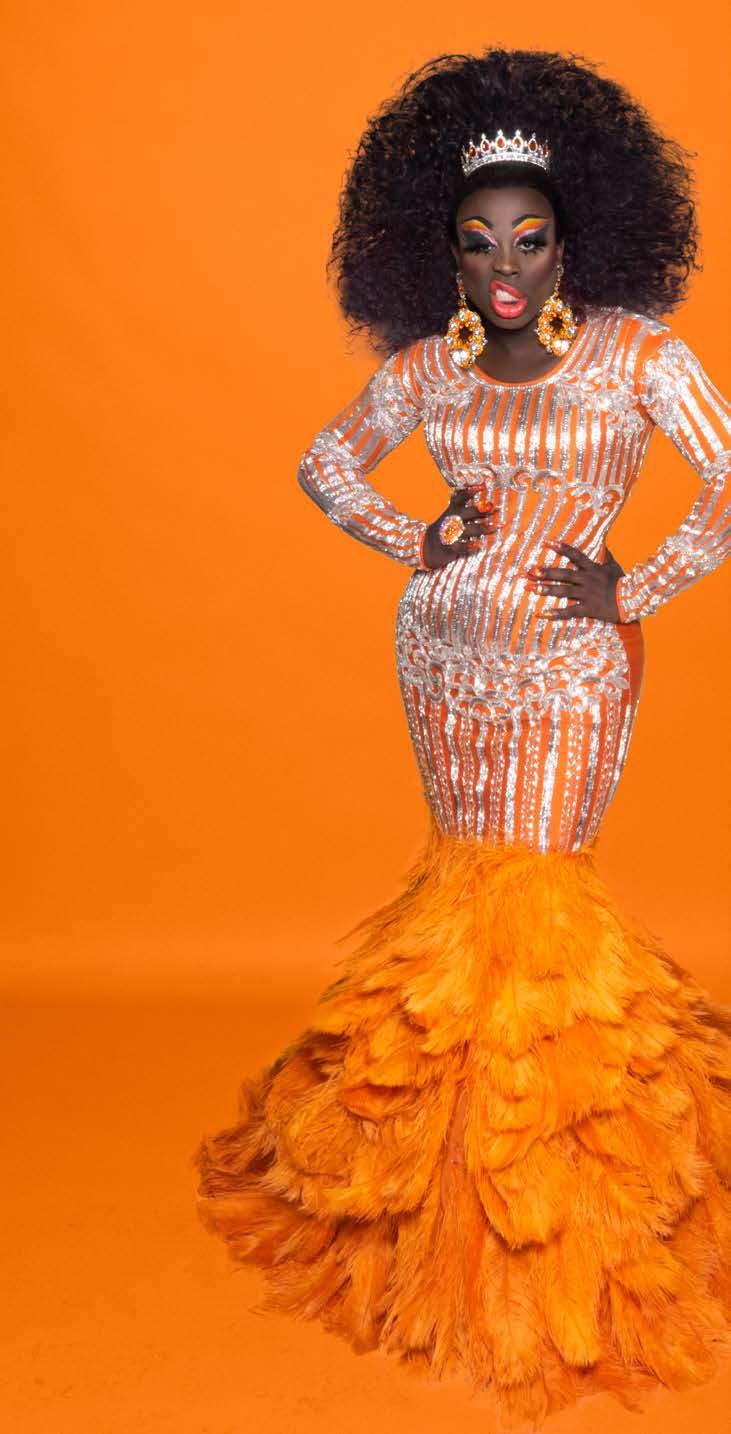
We had some amazing talent with us like Todrick Hall, Alex Newell, Monét X Change, some great names attached to it. It was a three-day event consisting of panels, performances, fundraising opportunities, and just a way to celebrate the joy that is Black queerness but also take a moment to mourn some of the losses that we have had in our community as well.
Did you ever think we would still be fighting for justice and equality in 2020? Oh, yes, for sure. One hundred percent. I mean, I think if I was, like, a cisgender, white dude, I would be like, “No, we got it figured out; we marched; I’ll say Marsha P. Johnson’s name out loud every June, and that is my contribution to the queer diaspora.” I think that would be a mischaracterization of where we are as a nation because I think that most Black people probably experienced some form of microaggression over racism on a weekly, if not a daily, basis.
Some cities are pushing to defund the police. What are your thoughts on that? Yeah, I want to talk about defunding the police. A lot of people hear that and think, let anarchy reign. No, that’s not what it means. What we are saying is, the budget for the police department is a little bloated. It’s a lot. Basically, the police department has so much money, and that money can be reallocated to different places. Also, when people say dismantle or defund the police, it’s a call to have police departments to be completely reevaluated. In my honest opinion, this is a job that needs a lot of training, more than what we are actually offering them right now. Not only that, but in my opinion, go ahead and start from scratch. I mean, I think that the standards need to be changed for what it means to be a police officer, and the people who have those jobs need to reapply. If you are going to be given a gun, like an actual gun, a deadly device, and be put on the street, then you need to be welltrained. More than well-trained—you need to be insanely trained. You need to be the best of the best.
There are a lot of Black Lives Matter deniers splashed across social media platforms who say things like “all lives matter,” or “racism doesn’t exist.” How do you respond to these people?
Well, the best way I can put it, there have been people on TikTok who actually said this really great idea of someone who has fallen and their legs are broken. They look at someone and say to get help because their legs are broken; then you say, "Well, what about my legs? Don’t my legs matter?" Yes, but your legs aren’t broken. In the midst of this, instead of helping the person whose legs are broken, you want to take this time, where we could be helping this person in distress, discussing whether or not your legs matter.
Have you ever been racially profiled or approached by the police in an aggressive manner? Yes, for sure. One hundred percent.
You have been vocal in the past about the toxic racism within the Drag Race fandom. Have you ever experienced racism from a fellow drag queen? I have certainly experienced microaggressions from other drag queens. One of my jobs here in New York City, I used to work at a bar, and I ended up quitting because I felt like the host of the show was really taking the opportunity during Black History Month to uplift her white voice. I remember thinking to myself that this doesn’t feel good, and it’s taking an opportunity to stifle Black voices. I remember thinking to myself that I can’t do the show anymore, and that’s just an example of some of the stuff. I mean, drag queens are all human beings, so if you find racism in the world, you are going to find it within drag queens, too. Drag queens are just a microcosm of the real world.
A lot of people are upset with Ru for not using her platform or being vocal about the situation. Do you feel the same way? I think if people are upset because Ru hasn’t made a statement, that’s people’s prerogative, but it’s also not the job of people who basically tone RuPaul’s shows. Like, for example, there’s a line of reasoning why Kanye West had not posted anything about Black Lives Matter, but there was one time he actually donated millions of dollars to the families of the deceased. So, I don’t know what RuPaul is thinking.
How do you think those who bear the title of America’s Next Drag Superstar can help the movement? That’s such a good question. I know what I did, which for me was about being a visual representation of what I consider to be a form of Black success. Now that we have another Black, Drag Race superstar, I think it is really great that the franchise has listed a lot of Black voices and has given opportunities to me, Peppermint, Jaida Essence Hall, Monét X Change, BeBe Zahara Benet, Monique Heart—the list goes on of people who have been able to make change in their communities.
How can white people be good allies? That’s a good question I have been asked, I think, more than any question. Like, white people are asking, what can I do? I think uplifting Black voices and not trying to make the movement about you. I know how very tempting that is to do. I love attention, and I love making everything about me. Trust me, there is not a person on this green Earth who likes attention more than I do.
Rest assured, but you know, also take this opportunity to show that you are actively anti-racist, not just non-racist. Not just being like, I don’t do racist stuff, but do you also call out racism when you see it? Do you advocate for queer people and voices? That is an opportunity for you to be anti-racist, not just say out loud that you don’t do overly racist stuff.
Any words of encouragement for other Black, queer people who are constantly feeling lost, sad, and hurt? Yes! There was a recent time where I felt really defeated and destroyed, but look at the progress we’re making. I called my mom; she was pretty upset that I went to protest, and I said well, one of the reasons I can go to protests and not be gunned down by water hoses or be bitten by dogs is because someone did it in the 60s. Yes, maybe there’s tear gas and stuff going on down, but because we are doing it now, maybe parents won’t have to worry about their children later on if they are going to be hurt by the police.
What’s next? Are there any other upcoming projects we should be on the lookout for? As of right now, I have been working on my play for a while now called Harriet Tubman: Live in Concert. So, I am working on that, and that’s probably more than a year out, but that is the next thing I want to work on. To stay up-to-date with Bob, visit bobthedragqueen.com.
ACCESSIBLE AND SAFE TRANS HEALTHCARE WITH PLUME by Veronica L. Holyfield
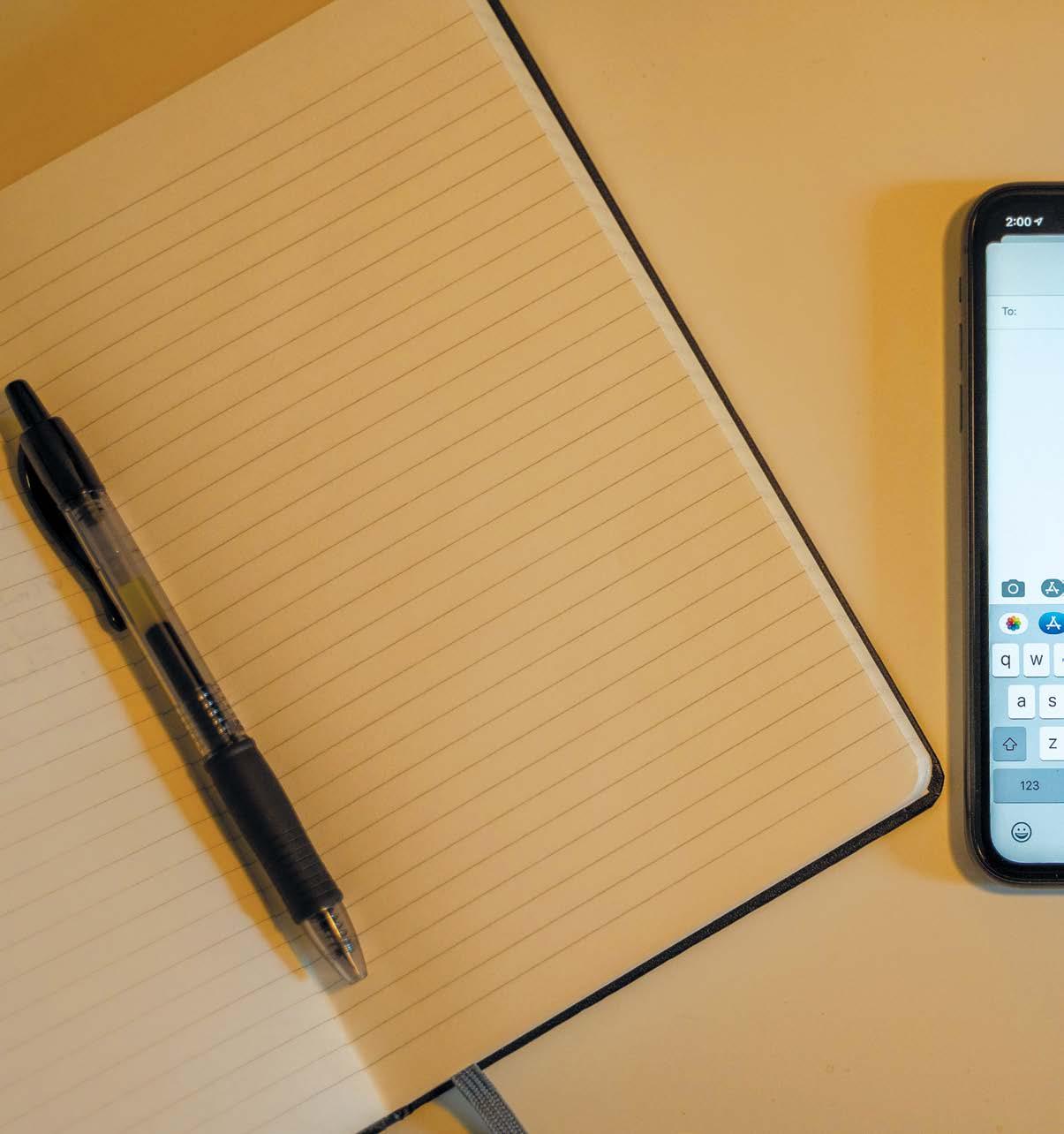
Since the launch of Mariposa Health in July 2019, Dr. Jerrica Kirkley and her business partner, Dr. Matthew Weschler, have seen their telehealth technology not only blossom but become in-demand for providing trans folks access to the gender-affirming care they need. A year ago, the idea of providing remoteonly HRT and other services via an appointment with a clinician over an app had peers in the profession raising an eyebrow. Now, in a world of COVID19, doctors and nurses are rushing to get educated on the new wave of delivering care. “Having the restrictions of COVID in place, a lot more medical practices in general are warming up to the idea of telehealth,” Dr. Jerrica Kirkly explains. “It does start to make it more commonplace for patients, especially now, and sometimes the only option for people to get care.”
Mariposa Health leapt into the next wave of inclusive care and is now called Plume. With the name change came a new era of evolution for the entire team. Having just secured venture capital funding, they have been able to build a novel, tech platform and truly deliver care exactly the way they envisioned it. In addition, Plume has built the team of trans and queer folks delivering that care and created even more safety and opportunity for individuals looking for these services. OUT FRONT met Dr. Jerrica in the fall of 2020 and learned about her story, why she got into the practice of providing gender-affirming care, and the foundation of delivering such a novel concept to trans and nonbinary folks. From her own journey of exploring and expressing her trans identity, she has a unique and relatable approach to delivering the safest and most accessible healthcare to folks looking to explore HRT. “One of the things that my business partner, Matthew, and I were always focused on was putting together a team that really represented the community we were serving,” Jerrica says. “Given that we're serving the trans community, we wanted to be primarily composed of trans folks doing this work.” Plume has grown to a team of 11 people all across the business board, from bringing on more clinicians to back office staff, to hiring engineers and marketing experts. With seven of the 11 team members identifying as trans, Plume is truly living out its mission and values to serve the population who seeks its care. “We have two care coordinators, myself as a physician; we recently just hired another physician, and have a nurse practitioner who's going to be joining us soon, and we are all trans-identified,” Jerrica says. Additionally, folks on the marketing and product team identify as trans, which means representation is woven into every layer of the organization. Navigating the labyrinth of the healthcare system in general can be frustrating and feel like a maze of painfully bad hold music and appointments scheduled for a month or more out. For many trans folks, exploring transitioning options can be uncomfortable at best and more than likely flat-out traumatizing as they navigate the confusing system. However, at Plume, patients have nothing but rave reviews about their experiences with Jerrica and the entire team. Review after review from patients who have utilized the Plume services shed some light on how it truly feels to receive gender-affirming care without ever having to step inside a doctor’s office. One patient writes, “I'm so excited to finally have a provider that understands what I need. Thank you for all you do!” Another expresses their gratitude for the “lifesaving services.” One more patient says, “Thank you so much! it’s crazy to me how simple you’ve made this whole process vs. all the hoops I’ve had to jump through the last few years just to try to get someone to help me be me." Jerrica admits that while she suspected there was a large need in the trans community for this kind of service, it hasn’t been until the day-to-day interactions with patients and the growth of the business at such a rapid rate that this fact is truly sinking in. “It’s really inspiring; we get amazing feedback on a daily basis from our patients. One thing that's been incredible is almost on a daily basis, I have a patient cry, literally, during the video visit for their intake after they realize that they're going to be starting HRT for the first time and that they're going to get prescriptions the day of the visit,” Jerrica says. She continues, “I, of course, can remember back when I first started HRT, that feeling and the excitement of something that you've been thinking about for so long and wanting to do and then finally had the opportunity to do it.” With Plume, the barriers truly are lifted, as the app has streamlined the initial stages to a 20-minute questionnaire. Within a couple weeks, folks can have their first video visit with one of the clinicians, and immediately, prescriptions are sent to the pharmacy. Jerrica says this process brings a combination of joy and surprise to most folks who are used to the historically drawn-out process in the healthcare setting. Knowing that the process of starting HRT is celebratory for folks who are beginning their transition, Jerrica and the entire Plume team want to deliver exactly that to all their patients. By creating the custom app that all the information and records are based in, they can ensure that the correct chosen names and pronouns are used at all times, which truly is genderaffirming care. “There’s this power in telecommunication and text-based communication,” Jerrica emphasizes. “Some people might think from afar that if you're not having an in-person visit, then it's hard to connect with a patient or establish a good rapport and relationship. What we found is that patients are incredibly comfortable and much more vulnerable when they're texting to us, or filling out a digital intake form, and patients will share their entire life stories, their entire journey of going through the processing of their gender. It's really beautiful to see.” For more information, visit getplume.co.
For Sheritta Washington, it’s not just cake. It’s a reflection of her community; it’s a legacy for her children, and it’s a reminder to appreciate the simple things in life like good cake and new friends. Colorado Pound Cake is a Denver-based bakery that specializes in Southern tea cakes and—you guessed it!—pound cakes.
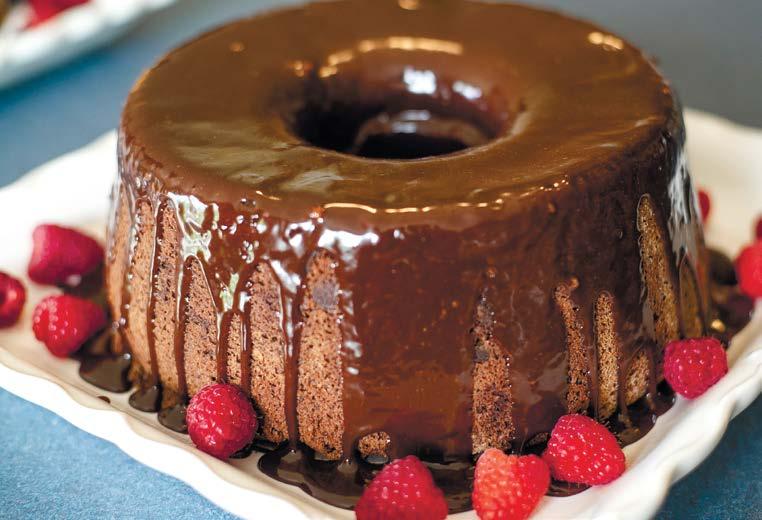
Washington and her close-knit team are as busy as ever delivering orders throughout the pandemic, which speaks to the emotional pull of a cake baked with the expertise that comes with generations of practice and all-natural, local ingredients. “COVID-19 has brought people back to the fundamentals of who we are and what life should be about,” she observes. Coloradans have been nostalgically pining over their cakes, from the classic chocolate to their you’d-never-guess-it-was-healthy sweet potato pound cake. But, if you have a better idea, they want to hear it. Chances are, if you dream it, they can make it, and in fact, many customer requests have stuck around to become Colorado Pound Cake favorites. “If you like it, we love it!” Washington says. As a mother of two, Washington recognizes that she is an entrepreneurial role model for her children and just about anyone else who knows her. She reflects on her family members who have great talents and regret never having started a business to showcase them. “As Black women, we were delegated as not being able to reach further.”
“I want to put my mark on the world,” she tells me, emphasizing that she wants her business to be seen as successful for what it is, not necessarily based on being Black-owned or woman-owned. She’s good at what she does, and that’s what she intends to be known for. For others with similar entrepreneurial aspirations, she cautions against delaying until everything is perfect. “We are what we tell ourselves we are,” she counsels. “Change the narratives.” She adds that there will never be a point when everything is perfect, so you just have to start and trust that the people who care about you will follow your lead.
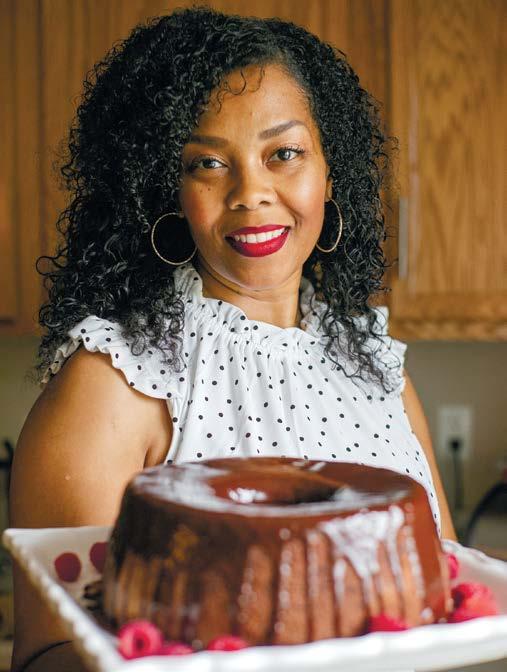
Soon, Colorado Pound Cake will be opening a storefront where it will really be able to lean into their ideals of having space to connect with customers. Washington and her team aim to remind their customers that life gets a little tastier with a healthy serving of human connection.
From the first moment you speak to Washington, you’ll have no doubt that she’s a people person. She wants her family to meet yours, no matter what family means to you. They welcome people of all stripes and want to know their customers’ stories. “Why did they come to see us, and what interests them about our cakes?” she enthuses. “We love to jog a memory by trying cake and tap into the nostalgia of this present moment to start to make out the faint, silver lining.” VIsit coloradopoundcake.com for more info.
by Christopher La Fleur CIALCR U Conversations in an Age
of Division
Every Father’s Day for the last decade, I’ve spent the weekend celebrating Denver’s PrideFest with my chosen family. In 2016, with the help of the City of Aurora and the astonishing team at OUT FRONT Magazine, I took the next steps and founded Aurora Pride. It remains one of my proudest moments, both personally and professionally. I believe with all my heart the nature of love is service, and over the years, I’ve served on boards dedicated to empowering queer-owned small businesses. I’ve had the honor of representing OUT FRONT at every Pride festival in the state of Colorado. In short, my love for the LGBTQ community runs deep.
Unfortunately, I never felt I could share my achievements with my father. Like many of you, my relationship with my family has always been complicated. Forty percent of homeless youth identify as queer, yet they represent just 7 percent of youth in America. I was never kicked out of my childhood home. Rather, growing up in conservative, rural America, I felt compelled to leave. Like the overwhelming majority of young queers, high school was punctuated with nightmarish bullying, the occasional after-school brawl, and a deliberate effort to be at home as little as possible. As queers, the trauma of growing up looms large in our adult lives. For many, it may never be fully resolved. In my heart, and with years of my life spent in therapy, I’ve felt a rising need to address and strengthen the complexities of my family dynamic. Yet, for as many years, I felt unready to raise the spectre of my past. No matter how difficult, it was a matter of when, not if, we’d speak. Speaking on the phone with dad, as we tend to do once weekly, the matter of Father’s Day came up. “Are you coming for Father’s Day this year?” “Well, I’m not sure,” I responded, “It’s the same weekend as Pride in Denver.”
I heard, immediately, the hurt in his voice, “Pride was canceled this year. I saw it on the news. If I don’t see you this year, I’m going to be really upset.” I left the conversation with an acute recognition of the pain on both sides. Ready or not, divine timing was presenting us with an opportunity to grow. Very little about 2020 surprises me anymore, but what followed was not only surprising, it filled me with newfound joy. To be clear, these dialogues are not, nor will they ever be, easy. Frankly, they shouldn’t be. However, from coast to coast and in every household with queer family members, the next step in the LGBTQ revolution is seeking not only to heal the divisions between parents and their children, but to also listen, understand, and see our parents for the people they are. We must recognize that, just as we are flawed, they were flawed as they raised us. Far from the city, I sat at the dinner table with my sister, stepmom, and father. I nervously raised the issue of our phone call. I felt ready to vomit. For anyone ready to have this conversation with their parents, start with a growth mindset. This is, above all else, a constructive, productive dialogue. Acknowledge the past, and see it for what it is: the past. We cannot take it back, nor can we spend our desperately short time on Earth wasting another minute on regret. “Dad, I know that you and I are so different in many ways. We’re also similar in more ways than either of us will admit. You’ve done so much for me over the years. You’ve given me my work ethic and shown me real strength,” I started. “However, my therapist has encouraged me to open up about the past with you. I’ve often felt at odds reconciling the 80 percent of myself that I’m so proud of with the 20 percent of myself I feel safe sharing with you.” Strangely, he wasn’t fiddling with the cutlery, as he often does. He listened attentively as I recalled some of the things which stuck with me the most. Sitting in silence, his expression revealed a complex and wide-ranging mix of emotions. My biggest fear, that I may be gaslighted or abandoned, never came to pass. “Pride, for my community is like our Independence Day. Although the physical festival may be canceled this year, we gather to remember things like the Pulse shooting, the AIDS crisis, Matthew Shepard’s murder, and Stonewall. It means a lot to me. Growing up with you was … hard. High school was a nightmare and, if I’m being honest, I’ve spent much of my life avoiding you or editing myself when we’re together. Our relationship now is better than ever before, but 10, 20, 30 years from now, I want it to be even stronger.” I held my breath after the words came out. “Buddy, I am so proud of you. You’ve done amazing things. I know Pride is important, but in the last 10 years, I’ve never seen you on Father’s Day. It’s the one day of the year that matters to me, and you’ve never been there. It hurts. I just don’t want to rock your boat. So, I don’t say anything.” His courage was humbling. We’d never spoken like this. I’d also never acknowledged my own absence in the family. In that moment, after so many years of avoidance and carefully chosen words, I felt heard and seen. But also, I was hearing and listening. My father, a man I’d never felt I could introduce a boyfriend to, was present in this moment. More than present, he was proud. Of me. I know that many of us will never have the chance to share such a vulnerable moment. Sometimes, the hurt runs too deep. But for those who feel ready, surrender to being surprised. Before my sister and I left his house, he said something new that I’ll never forget. “Hey, Christopher. Reading is fundamental.”
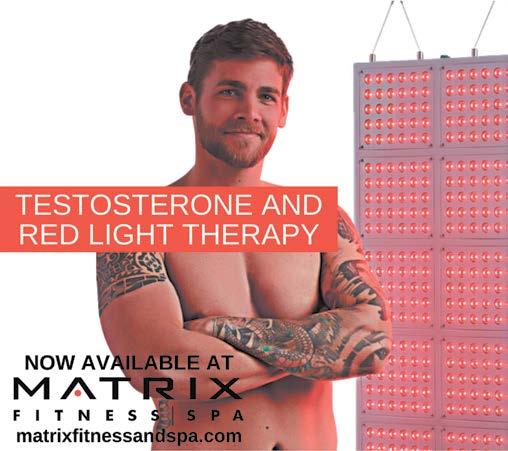
HEINZESIGHT THICKER THAN BLOOD
by Brent Heinze
My family is somewhat of a train wreck. Growing up, they weren’t supportive and were terrible when I came out. I rarely talk to them and only see them for a few hours on an occasional holiday. I’ve tried to talk to them about how I felt growing up, but I get the feeling that they don’t want to admit that it was tough or work on building a relationship with me now that I am an adult. Should I keep working on fixing our relationship or just cut my losses?
We are all born into families. Even if we were raised by other people than our biological parents, the family we experienced growing up was largely out of our control. There are times where extended family, adopted or foster parents, or community people may have also stepped in to provide safety, consistency, structure, and caring for us. Regardless of how we were raised, the people around us during that time may not be the people we choose to build a life around as we get older. Throughout our lives, many of us have experienced moving away from our support networks that existed when we were growing up. This includes moving away from our biological family and others who were there for us earlier in our development. Although we have little to no choice in selecting our original family, we can create an expanded support network as we get older. This becomes our family of choice, and the composition may change over time. Often, it includes a very select group of people including friends, partners, and even some members of our previously mentioned family. Some people are there for the full duration, while others may come in and out depending what is going on in each person’s life. Some are more impactful than others, while there may be certain people whose role is somewhat undefined or confusing to what they bring that is beneficial to the overall experience. Not every person has to have a particular function or quality that makes this extended family stronger, but most people in our chosen group enrich the overall experience in some way. I think the bigger question you are asking is if your biological family is capable of offering you the support and love that you want from them. Unfortunately, the longer you unsuccessfully attempt to gain acceptance, respect, or understanding from your family, you risk becoming increasingly frustrated and hopeless that you will achieve these desires. Honestly, you risk much more than just feeling disappointed. If you are experiencing rejection and emotional pain from them, you might actually be re-traumatized and cause more damage to yourself psychologically by trying to engage with them. You may want to consider how much effort you are putting into healing the relationship and how much energy you have spent in the past with limited amounts of success.
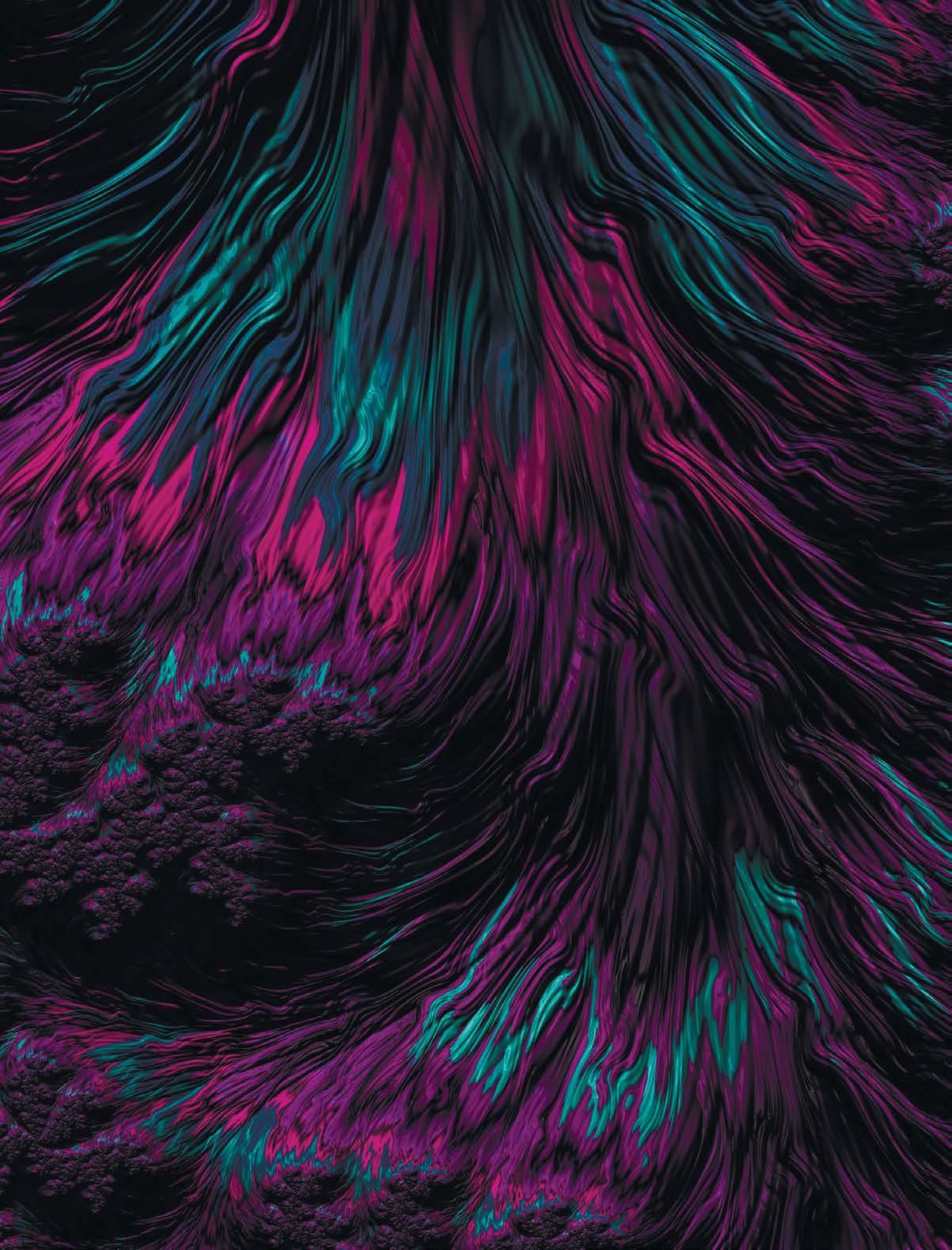
It may be a pointless venture that will leave you exhausted and depleted regardless of how much effort you put into trying to fix something that you likely didn’t break in the first place. You might benefit from putting your energy into building more fulfilling relationships and not focus as much on improving the dynamics of your biological family, especially if your efforts will have little or no noticeable impact. When you consider how you want to spend your time and energy, think about other people around you who bring up feelings of excitement when you see them. Many of us consider ourselves to be part of different communities and groups of people. Sometimes, we associate with those based on shared interests like music or other hobbies. Sometimes, we enjoy spending time with people because we feel drawn to their energy, humor, wit, or the way they make us feel when we snuggle up with them. We have the choice to surround ourselves with people who support, encourage, challenge, and love us. These are the people who are generally worthy of your friendship. If we are wasting our efforts on people who don’t have the capacity or desire to be an empowering member of our support network and family, then you aren’t putting as much effort into building healthy relationships with high-quality people as you could. Although it can be challenging to sever ties with people who are toxic in our lives, we are generally better off for facing that challenge. It may be painful or uncomfortable in the short-term, but cutting negative people out of our lives can save us from continued frustration and emotional hurt. In all reality, your efforts to gain their acceptance and approval will likely not happen regardless. It’s important to use our limited resources in the most efficient and effective ways possible. We only have so much to give, so don’t waste it on those who don’t appreciate or deserve it.
BENNY'S 301 E. 7th Ave. Denver (303) 894-0788 bennysmexican.com Happy Hours: MON-FRI: 4-6 p.m. SAT-SUN: 9 a.m. to 2 p.m. BLUSH & BLU 1526 E. Colfax Ave. Denver (303) 484-8548 blushbludenver.com
BOYZTOWN 117 Broadway St. Denver (303) 722-7373 boyztowndenver.com CHARLIE'S® NIGHTCLUB 900 E. Colfax Ave. Denver (303) 839-8890 charliesdenver.com MON - SAT: Happy Hour 11 a.m.-7 p.m. FRI: Neon Fridays SUN: $7 Beer Bust 4-8 p.m. CLUB Q 3430 N. Academy Blvd. Colo. Springs (719) 570-1429 clubqonline.com DENVER SWEET 776 N. Lincoln St. Denver (720) 598-5648 www.denversweet.com M-F: Happy Hour 2–7 pm SAT: Happy Hour 1–7 pm SUN: Bears on the Roof Bearbust 4-8pm Music Videos Daily | DJs Fri/Sat/Sun EL POTRERO 4501 E. Virginia Ave. Glendale (303) 388-8889 Facebook - Elpotrero.180 GLADYS: THE NOSY NEIGHBOR 500 Santa Fe Dr. Denver (303) 893-6112 HAMBURGER MARY’S 1336 E. 17th Ave. Denver (303) 993-5812 hamburgermarys.com/denver LI'L DEVILS 255 S. Broadway St. Denver (303) 733-1156 lildevilslounge.com
LIPSTICK DISCOTHEQUE 5660 W. Colfax Ave. Denver (720) 669-3470 SSI MILLERS & ROSSI Contemporary Art Speakeasy 3542 Walnut St, Denver 720-257-5342 Mention OUT FRONT for $2 off all specialty cocktails
PRIDE & SWAGGER 450 E.17th Ave. #110 Denver (720) 476-6360
R&R LOUNGE 4958 E. Colfax Ave. Denver (303) 320-9337
TRADE 475 Santa Fe Dr. Denver (720) 627-5905 THU: Skivvy Stripdown SAT: Beer Bust 3 - 7 p.m. SUN: Beer Bust 3 - 7 p.m.
THE TRIANGLE BAR 2036 N. Broadway St. , Denver (303) 658-0913 triangledenver.com
STONEY'S UPTOWN JOINT 1035 E. 17th Ave. Denver (720) 485-5503 Stoneysuptown.com
WILD CORGI PUB 1223 E. 13th Ave., Denver (303) 832-7636 wildcorgipub.com
K ALA M A T H S T .
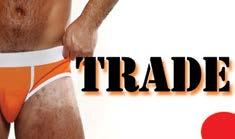
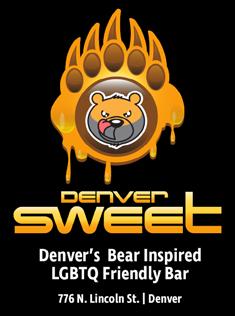
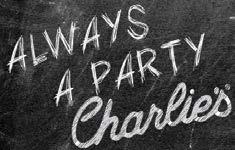
COLFAX AVE. BLAKE S T . W AL N U T S T . 1 6 T H S T . M AL L A R A P AHOE S T . B R O A D W A Y B R O A D W A Y P ARK A VE . W E S T D O WNIN G S T . O G DEN S T . CLA R K S ON S T . W A SH I N G T ON S T . PEN N S Y L V AN I A SPEE R B L V D . S A N T A FE D R . 11TH AVE. 17TH AVE. 8TH AVE. 6TH AVE. 1ST AVE. COMPOUND BOYZTOWN TRADE XBAR P RIDE & SWAGGER STONEY'S MILLERS & ROSSI #VYBE BENNY’S HAMBURGER M ARY’S CHARLIE’S BLUSH & BLU WIL D CORG I PUB DENVE R SW EET GLADYS TRACKS CLO CKTOW ER TRIAN GL E L I’L DEVILS 31ST AVE.
Y ORK S T . C O L O R ADO B L V D .
